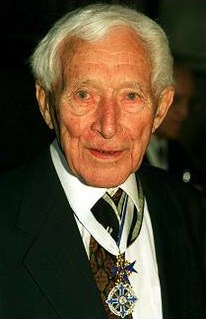A Quote by Edmund Burke
We must all obey the great law of change. It is the most powerful law of nature.
Related Quotes
For those who have only to obey, law is what the sovereign commands. For the sovereign, in the throes of deciding what he ought to command, this view of law is singularly empty of light and leading. In the dispersed sovereignty of modern states, and especially in times of rapid social change, law must look to the future as well as to history and precedent, and to what is possible and right as well as to what is actual.
[T]he guilty as well as the innocent are entitled to due process of law. They are entitled to a fair trial. They are entitled to counsel. They are entitled to fair treatment from the police. The law enforcement officer has the same duty as the citizen-indeed, he has a higher duty-to abide by the letter and spirit of our Constitution and laws. You yourselves must be careful to obey the letter of the law. You yourselves must be intellectually honest in the enforcement of the law.
Lower the Law and you dim the light by which man perceives his guilt; this is a very serious loss to the sinner rather than a gain; for it lessens the likelihood of his conviction and conversion. I say you have deprived the gospel of its ablest auxiliary [its most powerful weapon] when you have set aside the Law. You have taken away from it the schoolmaster that is to bring men to Christ . . . They will never accept grace till they tremble before a just and holy Law. Therefore the Law serves a most necessary purpose, and it must not be removed from its place.
There is one all-important law of human conduct. If we obey that law, we shall almost never get into trouble. In fact, that law, if obeyed, will bring us countless friends and constant happiness. But the very instant we break the law, we shall get into endless trouble. The law is this: Always make the other person feel important.










































